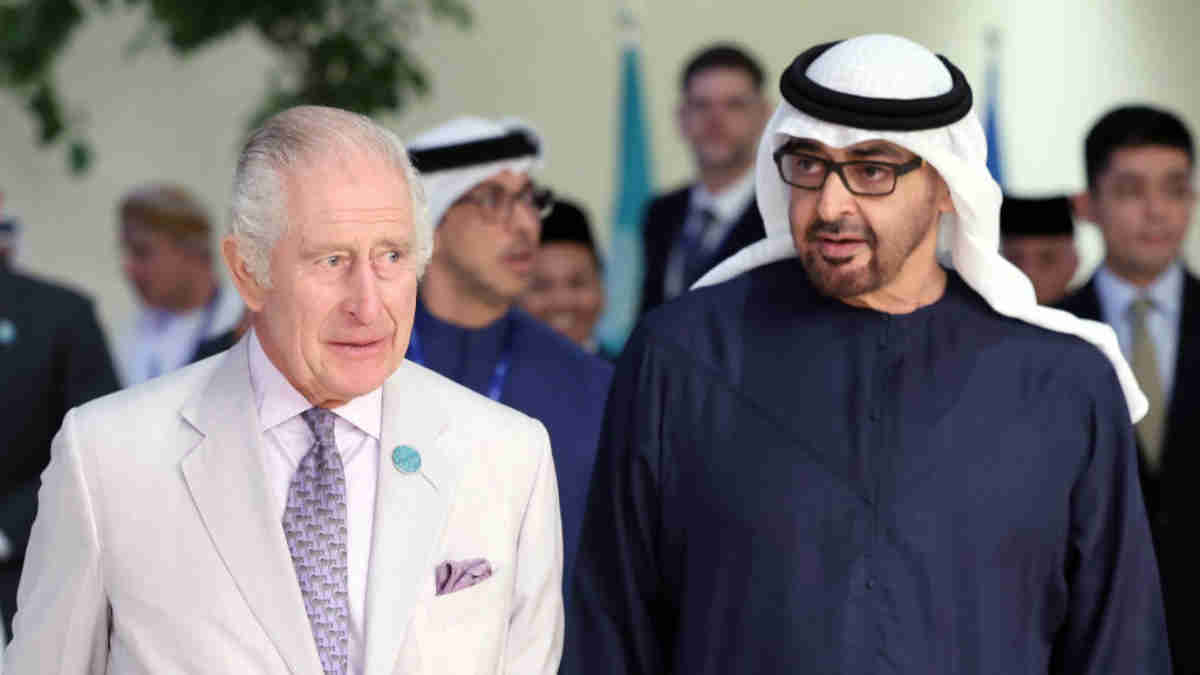COP28 is currently being held in Dubai
The high stakes event will discuss the progress made on the 1.5 degrees Paris Agreement
Stockhead reached out to two experts to gain some insights
More than 70,000 politicians, diplomats, financiers and CEOs are currently attending the COP28 event in Dubai, which is being held from 30th November through to 12 December.
The UN-backed climate summit is a yearly event that brings together stakeholders to talk about progress on the global response to the climate emergency, and ultimately, how to save the world from environmental catastrophe.
COP stands for Conference of the Parties, and the 28th iteration this year promises to bring a more pressing message than previous years: that the world urgently needs to do more to take action and keep the 1.5 degrees Paris Agreement goal within reach.
In his pre-COP opening speech, Dr Sultan Al Jaber, the COP28 President, called for unity, while vowing not to “kick the can” on climate action and do everything he could to bring “a polarised world” towards taking up clean energy more quickly.
“Let’s come to terms with some realities: we must raise the maximum ambition possible, but please … let’s be honest about what it will really take to get the job done,” Al Jaber said.
The all-crucial Global Stocktake report
Greenhouse gas (GHG) emissions are at an all-time high despite previous pledges, and discussions at COP28 will likely focus on the rapid scaling up of renewable energy, and how new sources like hydrogen can help reduce emissions.
Among the key issues to watch at COP28 is the UN’s draft Global Stocktake synthesis report, released on September 8th.
The Global Stocktake is a score report where each government delivers a comprehensive assessment of its “progress towards achieving the purpose of the Paris Agreement, and its long-term goals.”
The Stocktake occurs once every five years, providing an opportunity to align efforts and evaluate where progress has fallen short. Findings from the Global Stocktake report will feed into new country targets on the climate crisis.
In terms of what each country wants from COP28, the US will be looking to stop new coal-fired power plants from getting permits, immediately.
China, the world’s largest current producer of GHG, will likely continue to press wealthy nations like the US to contribute more money to help developing ones transition to clean energy.
China is actually investing massively in renewable energy — nearly four times what the US is doing – but at the same time it continues to permit and build new coal-fired power stations at home.
Meanwhile, the EU arrives in Dubai with two main priorities: scaling up renewables, and phasing out fossil fuels.
Stockhead asks these questions to two experts
Stockhead reached out to two climate experts, to ask what they expect to see from the COP28 Summit.
Cam Walker is the campaigns co-ordinator at Friends of the Earth Australia, while Ilona Millar is a partner at law firm Gilbert + Tobin.
What do you think is the most pressing topic at COP28?
Cam Walker of Friends of the Earth Australia:
“The fact that we are very close to passing the target of 1.5C of overall warming provides the direst of warnings to the global community that we must act to radically reduce emissions now,” Walker said.
“This means we must secure a binding agreement at COP28. Climate science makes it abundantly clear that we are running out of time if we want to have a hope of avoiding catastrophic global warming.
“As far back as the Copenhagen climate summit in 2009, climate-vulnerable nations were arguing for the 1.5C figure, but since that time there have been continual blockages in the global climate talks to achieving a binding program to hold warming to this level.
“Another pressing topic is the fact that the fossil fuel industry has enormous power within the negotiations and is attempting to gain support for costly and ineffective alternatives to meaningful mitigation on climate change.
“Many of the proposals being pushed in this global policy space – notably in Article 6 of the Paris Agreement concerning carbon markets – are false solutions to the climate crisis.
“Those proposals have shown to harm communities and ecosystems while delaying real climate action. These include net zero, nature-based solutions, geo-engineering, carbon markets, and carbon capture technologies,” said Walker.
Ilona Millar of Gilbert + Tobin:
“COP28 will see the conclusion of the first Global Stocktake, which is a five-yearly process established under the Paris Agreement,” said Millar.
The Stocktake aims to assess how Parties to the Agreement are progressing collectively towards the global goal to limit global warming to 1.5 degrees, identify gaps in ambition, and suggest pathways for progress.
“Importantly, its outcomes will inform Parties’ next ‘Nationally Determined Contributions’ (NDC), which are essentially national climate action plans, which are due to be submitted by 2025.
“It is clear from the outcomes of the Stocktake so far that the world is not on track to meet the temperature goals of the Paris Agreement.
“Collective NDC commitments are insufficiently ambitious, current policies and actions are falling short of meeting NDCs, and global emissions continue to rise.
“At COP28, there will be an opportunity for the Parties to consider the final outcomes of the Stocktake, and agree a decision on how the outcomes of the Stocktake should be taken forward.
“If such a decision is agreed, it could provide critical guidance for Parties as they prepare their next NDCs and in this way has potential to promote increased ambition among Parties,” Millar said.
What (quick) wins can Australia gain from COP28?
Cam Walker at Friends of the Earth Australia:
“After many years of being seen as being a laggard in the international climate talks, Australia has an opportunity to regain its status as a nation that understands the science and is willing to act on it,” Walker said.
“This will mean a demonstrated and binding commitment to reduce our domestic and trade-based emissions in line with climate science, and meaningful support for adaptation programs with our Pacific neighbours.”
Ilona Millar of Gilbert + Tobin:
“One of the COP28 Presidency’s focuses for the conference is progressing the global energy transition, including through building renewable energy capacity,” said Millar.
“Against that background, I expect that the Government will look to use COP28 as a platform to build its profile as a future ‘renewable energy superpower’, and showcase the various recent policy initiatives introduced recently to incentivise domestic and international investment in renewables.
“Not least the recent announcement that an extra 32 GW of renewable energy and clean dispatchable capacity will be added to the national grid by 2030.
“Australia hopes to host the COP31 in 2026 in partnership with Pacific nations which it announced last year at COP27, and there are calls from Pacific leaders for Australia to match its COP31 aspiration with action.
“I also expect COP28 to offer an important opportunity for Australia to engage with our Pacific neighbours, and to demonstrate its commitment to supporting climate resilience in the region,” Millar said.
The post The Ethical Investor: Our COP28 insiders on the Global Stocktake and how Australia could win Dubai appeared first on Stockhead.























+ There are no comments
Add yours